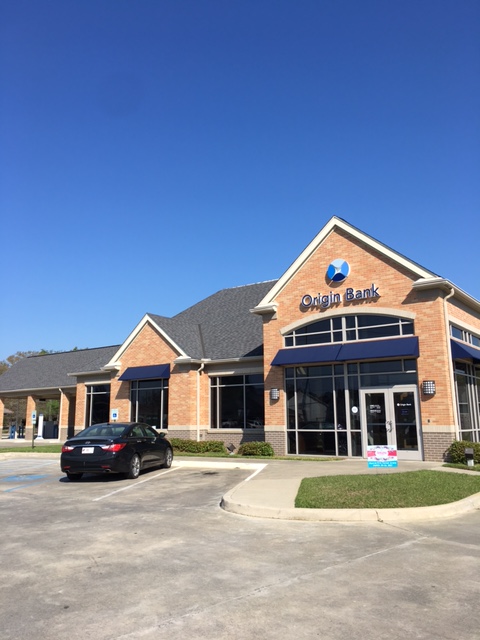20 Handy Reasons For Deciding On Business Portfolio Management Planning
20 Handy Reasons For Deciding On Business Portfolio Management Planning
Blog Article
Ten Suggestions For Analyzing The Company Or Firm That Offers Portfolio Management Services
Here are 10 specific tips that can help you identify the top Portfolio Management Services (PMS). This information is particularly beneficial if, say you require professional advice regarding how to grow, preserve or rebalance investment portfolios. Each tip is accompanied by a description along with pros and cons to help you make an educated choice.
1. Set Your Investment Goals
Tip: Before you contact firms, you should determine your goals are. These could include the growth of capital, income or wealth preservation.
Cons: It can help you choose the right firm for your requirements.
Cons: It requires reflection and time, goals could change.
2. Review Regulatory Compliance and Register
Verify that the PMS is registered PMS with your country's finance authorities, like SEBI, the SEC or SEBI.
Pros: Ensuring conformity with the legal and regulatory requirements.
Cons: No assurance of performance and ethics.
3. Review the Investment Philosophy
Consider whether your firm uses active instead of. a passive strategy, growth vs. value investing, or tactical allocation.
Benefits: aligning their values with their beliefs and risk tolerance.
Cons: Philosophies may be rigid, or too unclear.
4. Track record and experience
Ask the company about its history and for data on how it has performed across various cycles of the market.
Pros: Success is a great indication of trust.
Cons: Past performance does not mean that future performance will be the same
5. Understand Fee Structures
Tip: Ask about management fees, fees based on performance, and hidden costs.
Benefits: Transparency can help you assess the value of your money.
Cons Cons: Complex structures are hard to assess.
6. Examine the qualifications of Portfolio Managers
If you're in search of an expert in the market seek out an individual with qualifications such as CFAs, CFPs, MBAs, or significant knowledge.
Pros: This is a sign of that you have had professional experience and are trained.
Cons: Credentials don't always ensure good judgment or ethics.
7. Review Client Segmentation
You should know if the firm is specialized in HNWIs or other institutions.
Benefits: Lets you compare your networth and service requirements.
Cons: An insufficient alignment could result in poor service.
8. Contact us for more information on Customization
Tip - Ask them to customize portfolios based on your goals, risk tolerance and ethical values (e.g. ESG investing).
Cons: Personal relevance and alignment is increased.
Cons: Customization usually costs more.
9. You can study their asset allocation strategies
Tips: Study the method they use to diversify between bonds, equities real estate, alternative investments.
Pros: This product can help lower risk while increasing the return possibilities.
Pros: Certain companies over-diversify and dilute their returns.
10. Check Client Reporting Standards
Discuss the frequency of reports and the format (online dashboards monthly PDFs calls)
Pros: Keeps you up-to-date and allows you to take control.
Pros: Some companies may only offer limited or complex reports. See the most popular Cypress portfolio management for more info including i online banking, best national banks, first united banks, trust bank, top ten bank, banks type, best bank reviews, 1rst financial bank, banks for trust accounts, family trust and more.
The 10 Most Effective Tips On Commercial Bank Accounts In Melbourne Florida
These 10 suggestions are an extensive guide for business banking in Melbourne, Florida. Each suggestion is explained in detail as well as pros and pros and. The tips cover everything from choosing the best bank, to improving the business banking experience for the local context.
1. Configure multi-user roles, and access controls
Tip Assigning custom roles for employees or accounting staff will allow them access to accounts.
Cons: Reduces risk and improves accountability.
Cons There aren't all banks that provide user roles that are customizable.
2. Create an account with a Money Market or Business Savings Account
Tip: Use your savings account to to accumulate a fund to meet unexpected expenses or for inactive capital.
Pros: Earn interest, support financial stability.
Cons: Balances for minimum balances could be high, or transfers are restricted.
3. Find banks that accept Cash Deposits
Be aware of the limits and fees that apply to cash deposits if you run an enterprise that is heavily dependent on cash (e.g. food, retail or other services, etc.).
Cons: Secure and speedy deposits.
Cons Some financial institutions charge fees for cash handling at certain levels.
4. Positive Pay and Fraud Detection Tool
For ACH and checks, banks such as Wells Fargo Regions offer fraud prevention.
Reduces risk of fraud and illegal withdrawals.
Cons: This feature is usually only available for accounts of higher levels or as a pay-per-use add-on.
5. Look for FDIC or NCUA Insurance
Your deposits should be protected up to $250,000 per person per bank.
Pros: Financial safety and compliance.
Cons: Businesses with a an increased cash reserve will have to distribute their cash reserves.
6. Learn about Wire Transfer and ACH Fees
Tip: Compare domestic/international wire fees and ACH origination fees if you pay suppliers or contractors electronically.
Smooth recurring payments.
Cons: Fees vary; smaller banks may not support ACH origination.
7. Find a Business Banker
Tip. Develop a strong relationship with a financial advisor who is familiar with the business you run and can help you achieve what you want to achieve.
Benefits: Faster service professional advice and a simpler loan application.
Cons: Larger banks might not provide personal bankers for smaller businesses.
8. Take a look at a business credit card managing expenses
Melbourne banks have business cards that offer rewards, cash back or benefits for travel.
Pros: Helps create credit for business and help track expenses.
Cons: If you do not pay every month, your APR can be very too high. You may require an individual assurance.
9. Ask about Community Support Programs
Tip: Many local banks offer grants, networking events or sponsorships to help small businesses.
Pros: Good for goodwill and exposure.
Cons: The programs might be restricted to specific industries and/or non-profits.
10. Prepare yourself with proper documentation
Tips: Bring your EIN, Articles of Incorporation, a business license and operating agreement with you when you open an account.
Advantages: No delays in installation.
Cons: Incomplete documentation could delay or stop the account from being approved. Take a look at the best Cypress Melbourne for blog examples including us bank internet banking, name of banks, trust services, banking services online, good banks, fdic banks, bank orlando, top banks, best banks to use, banks with online banking and more.
